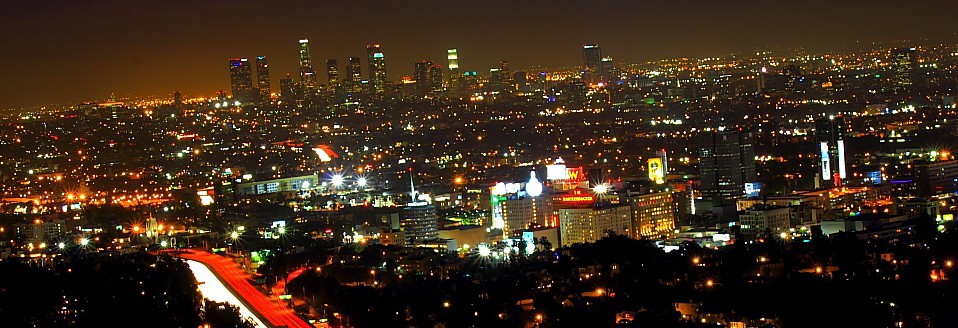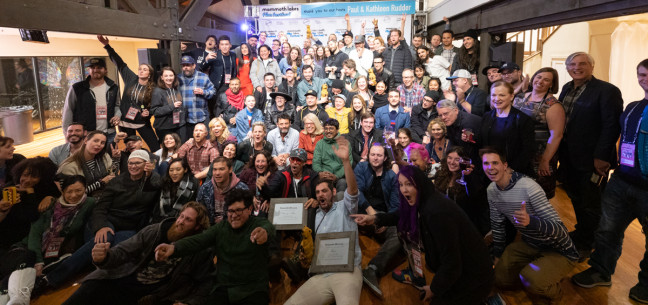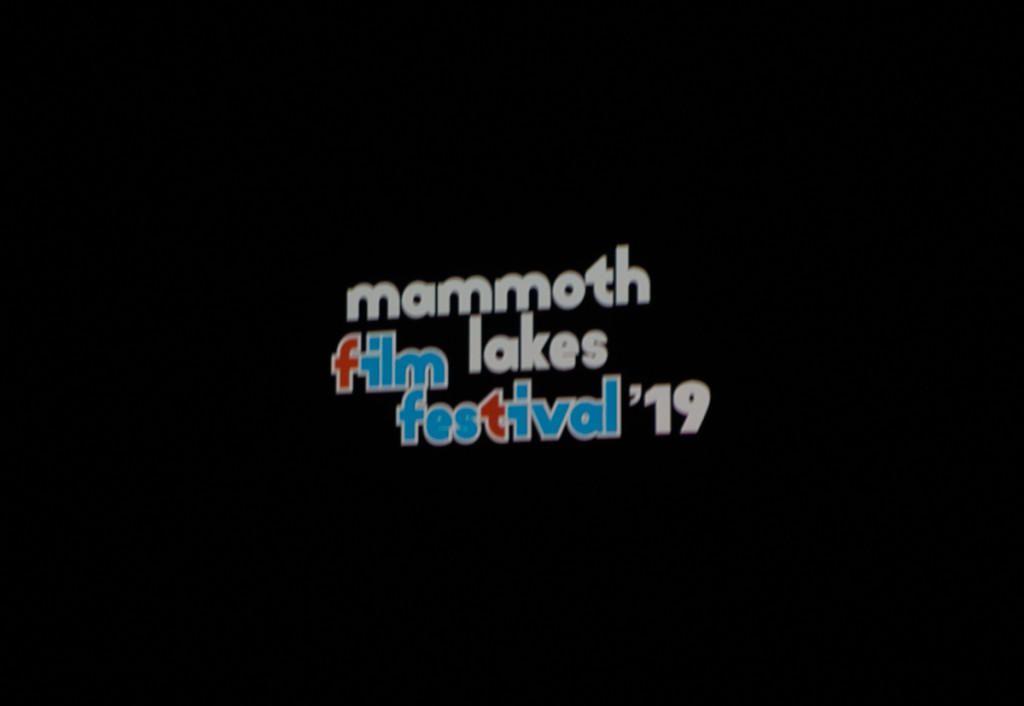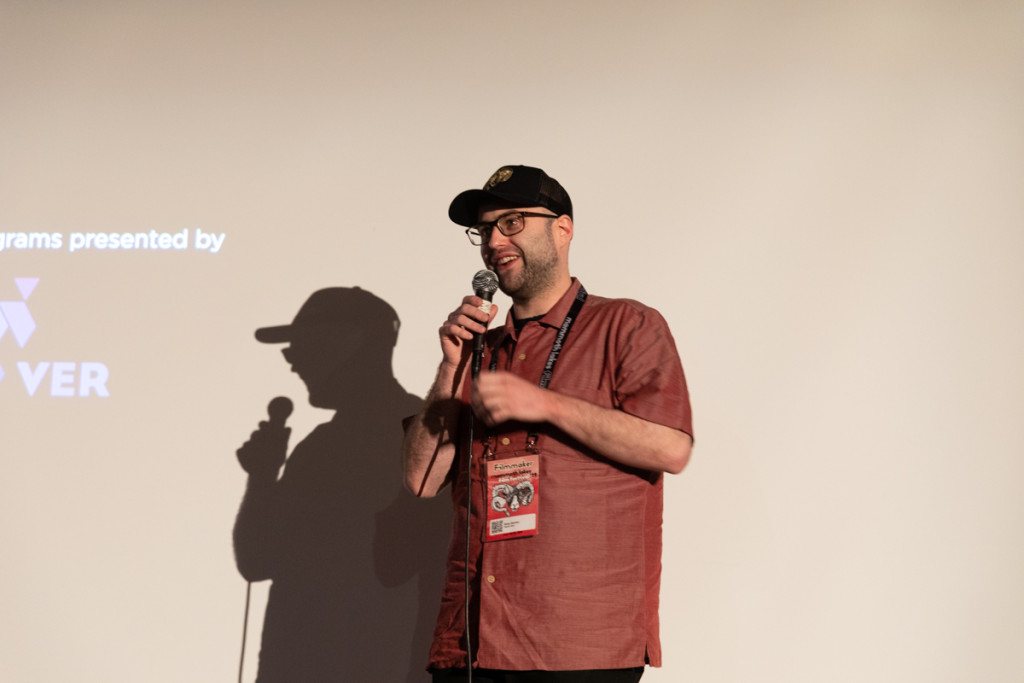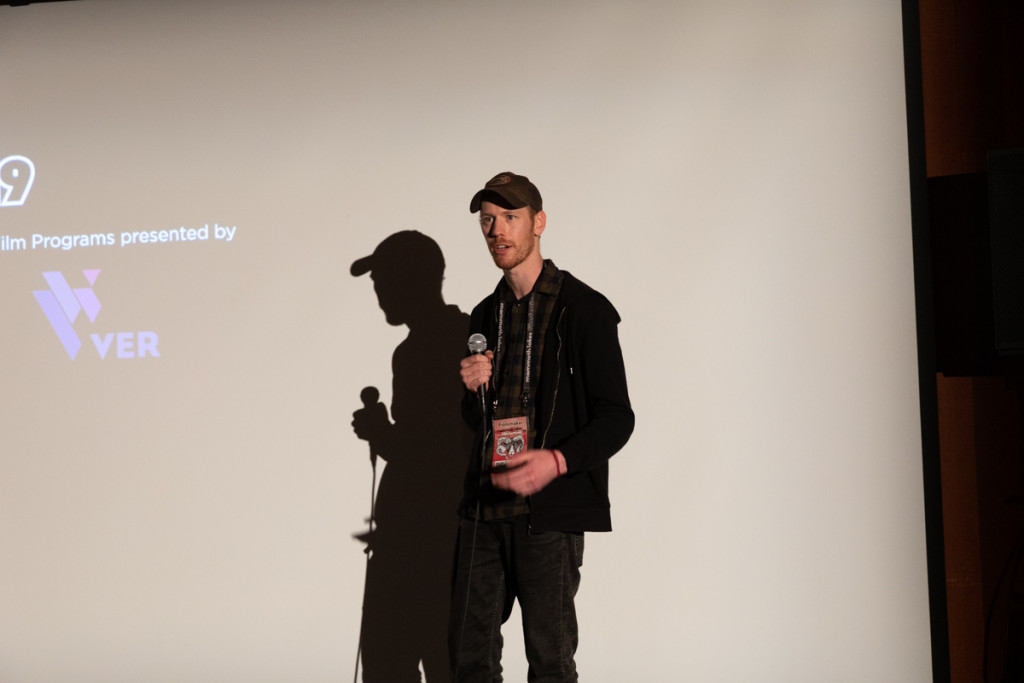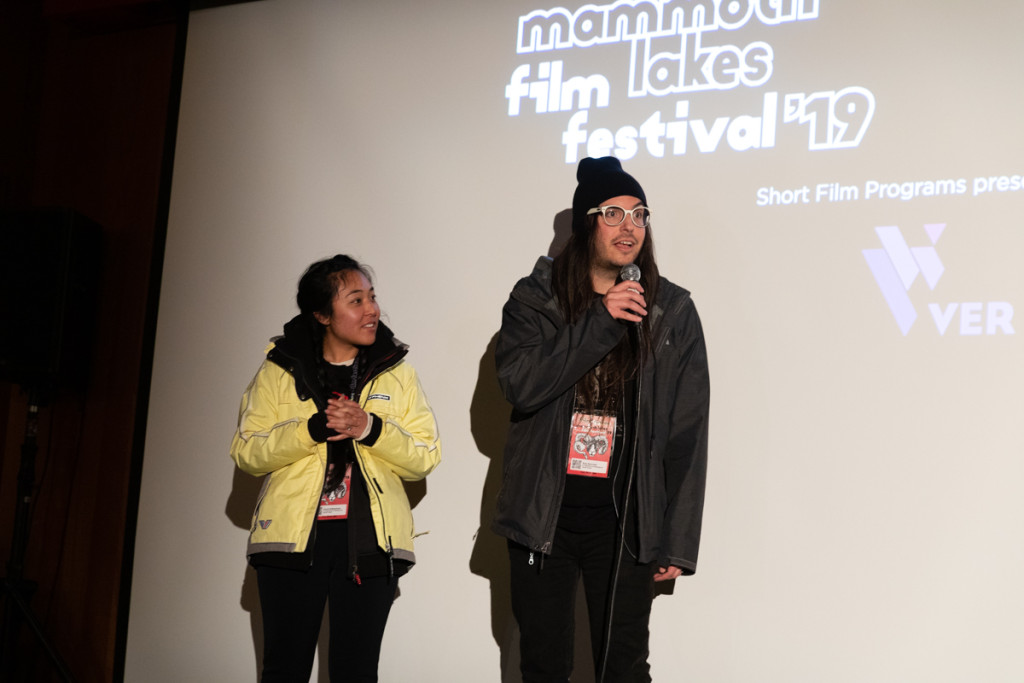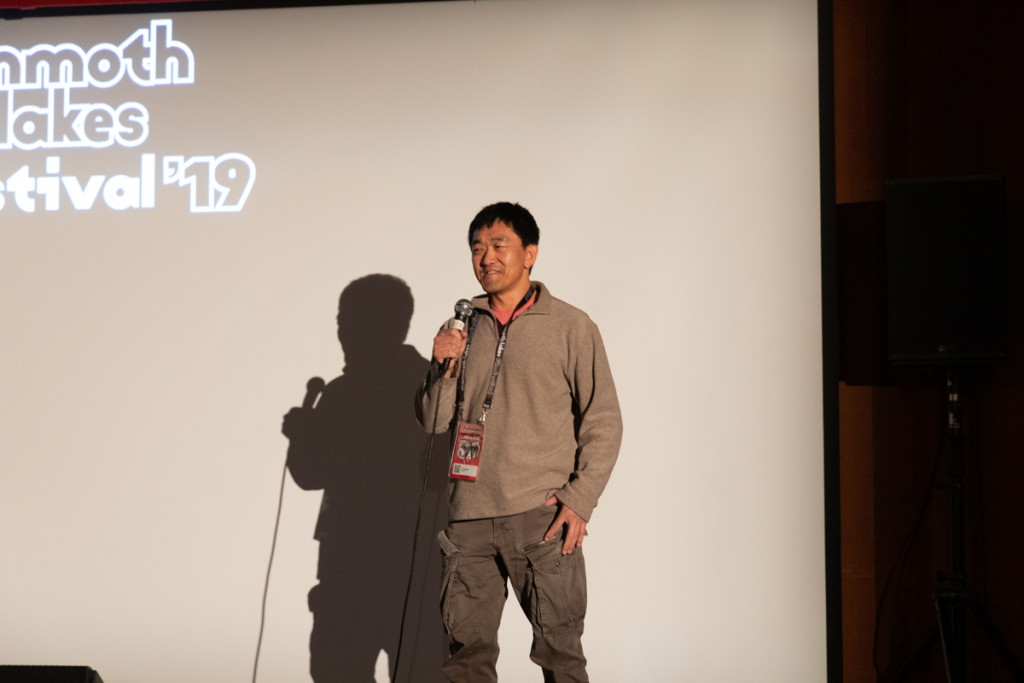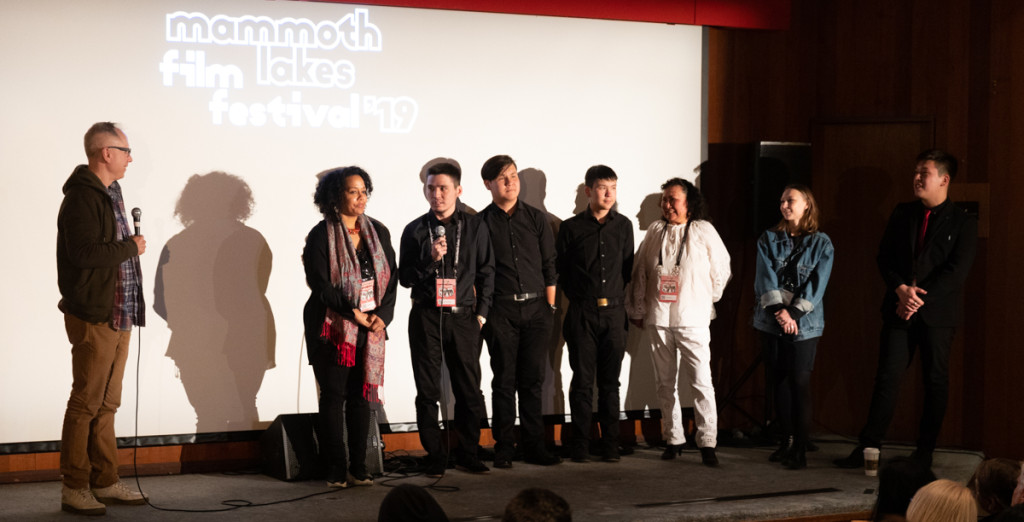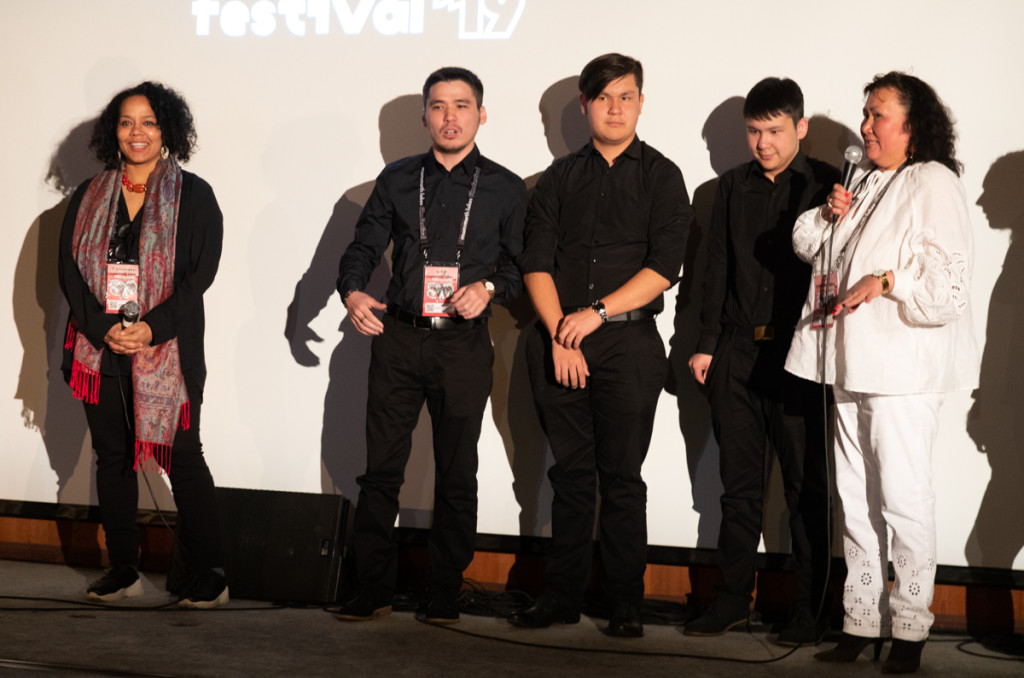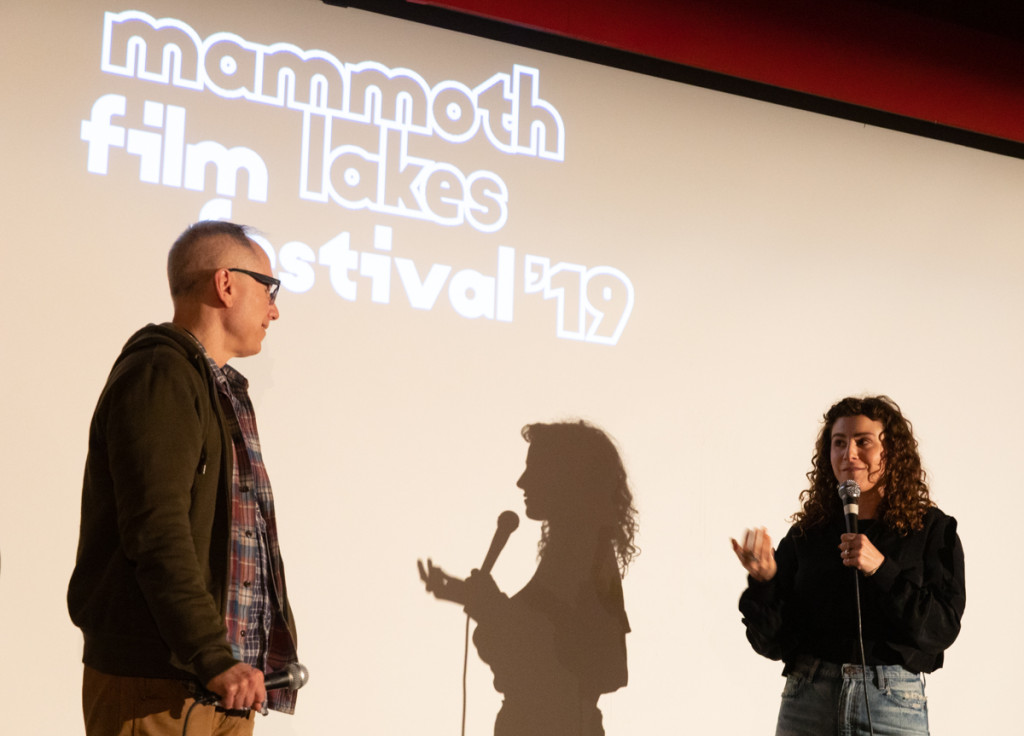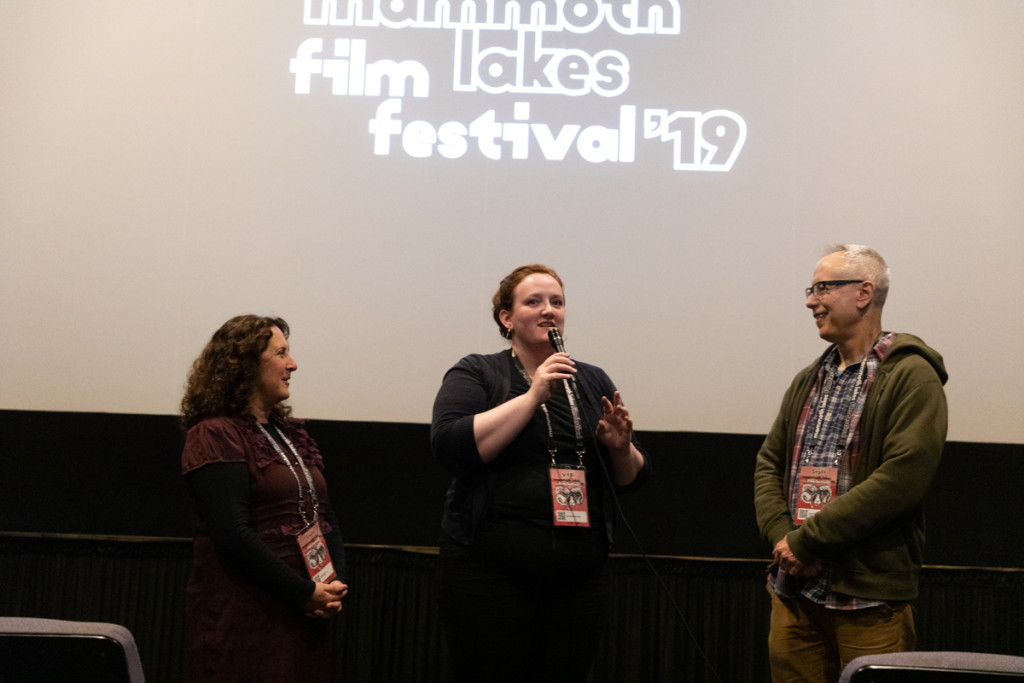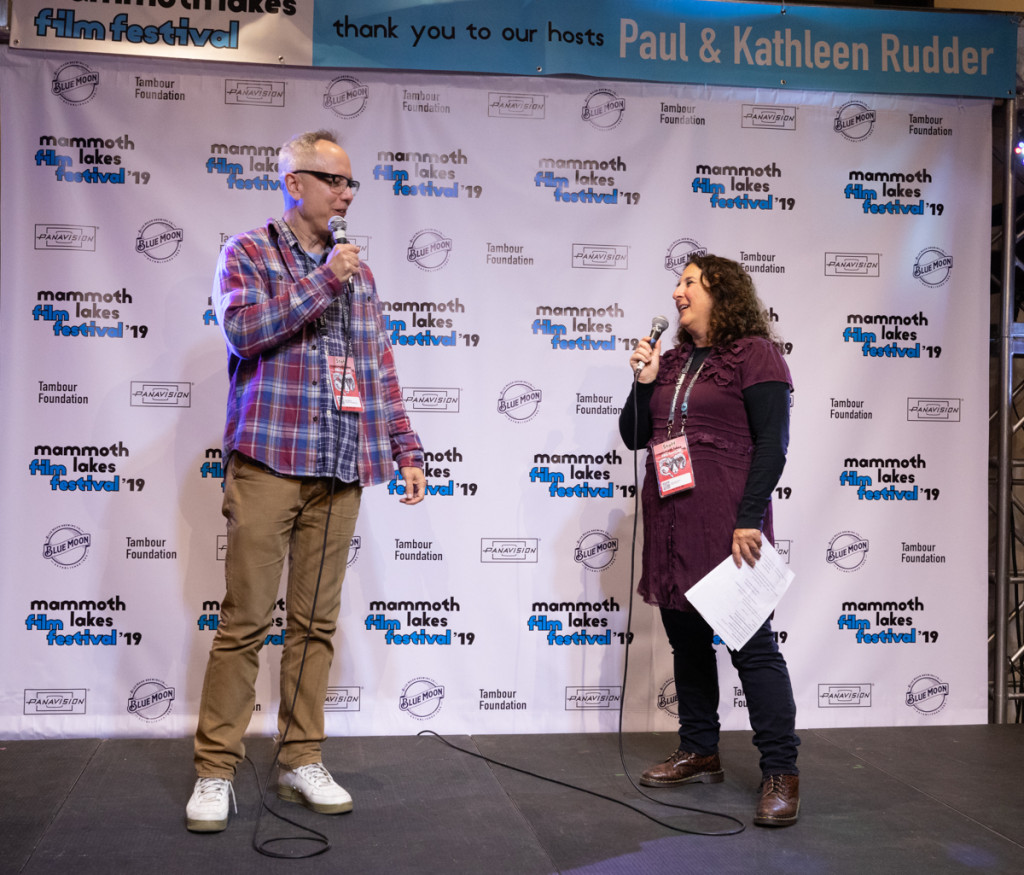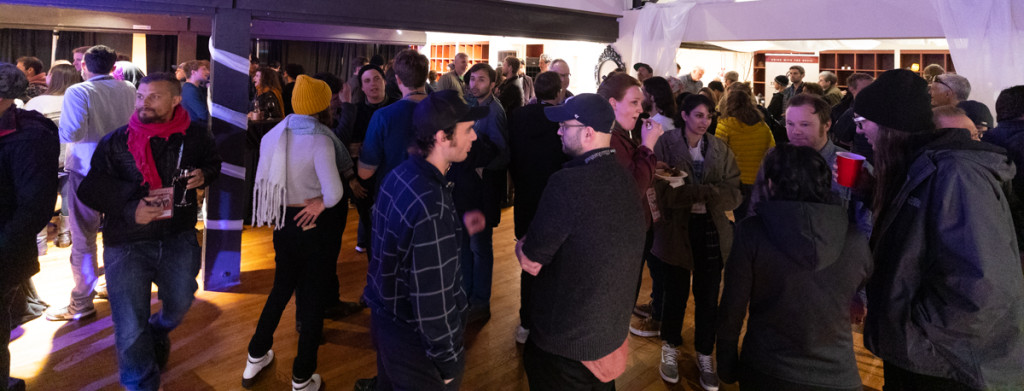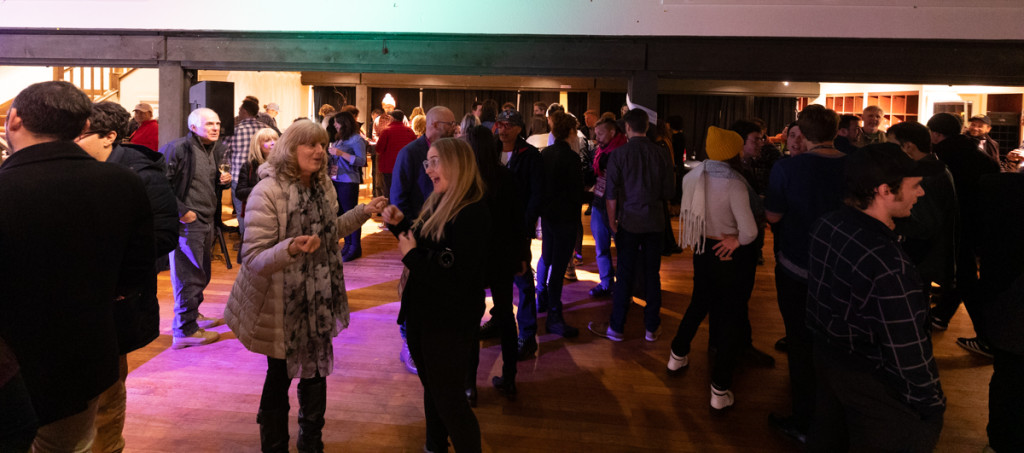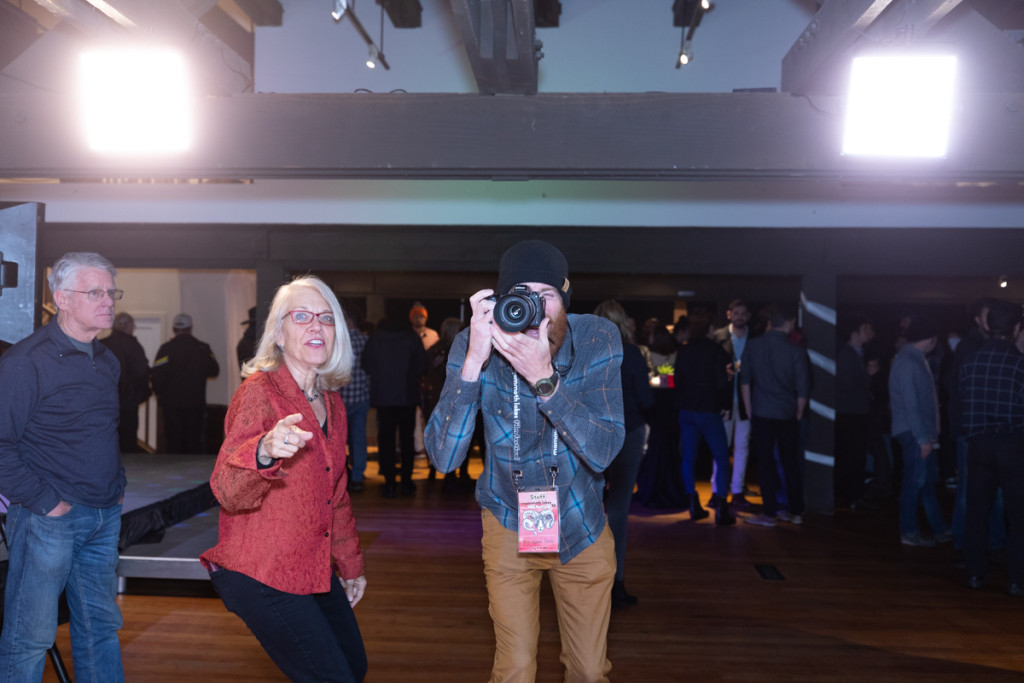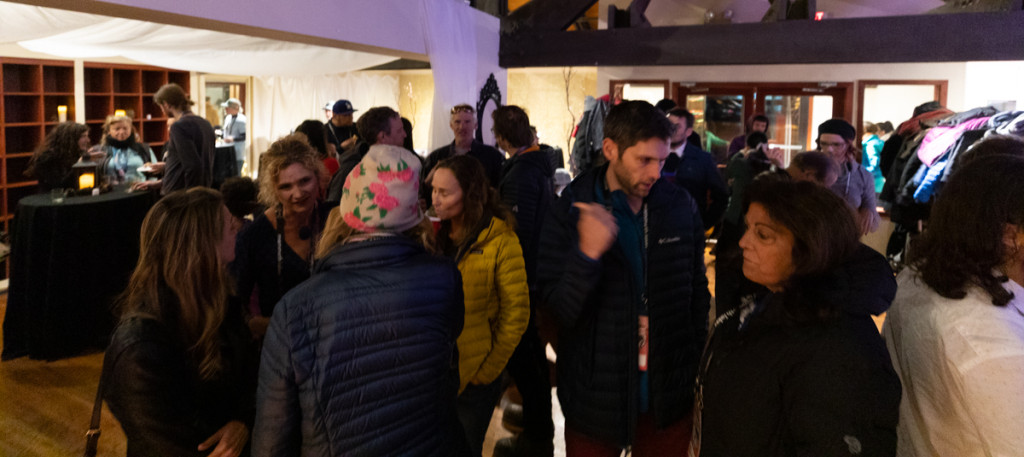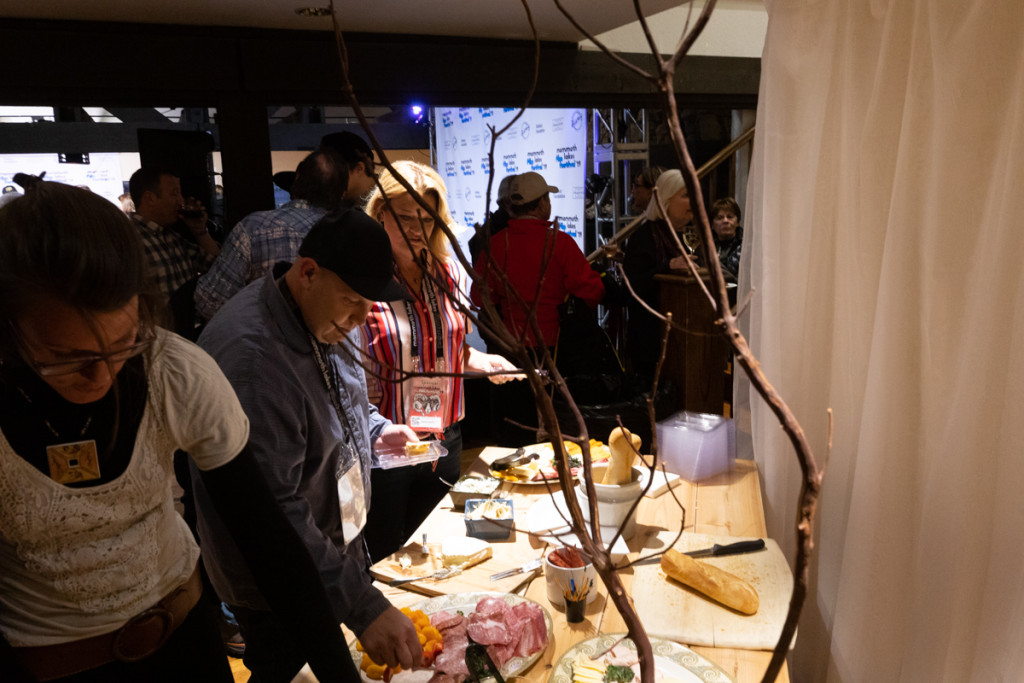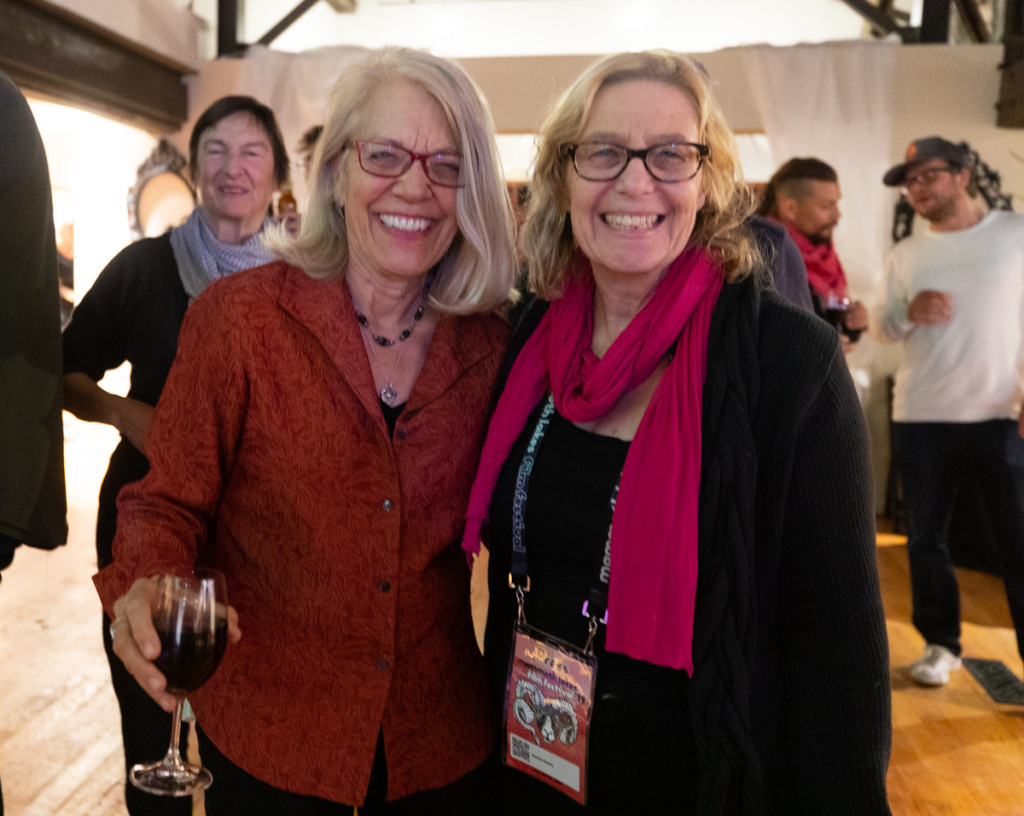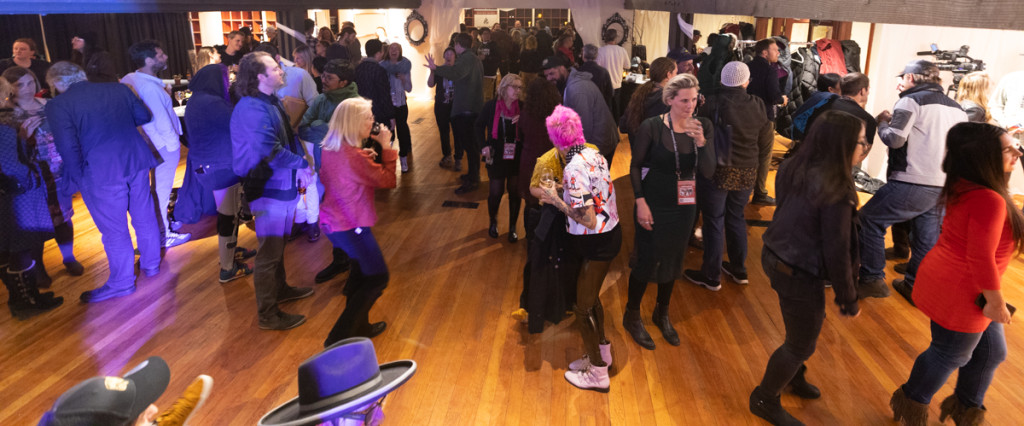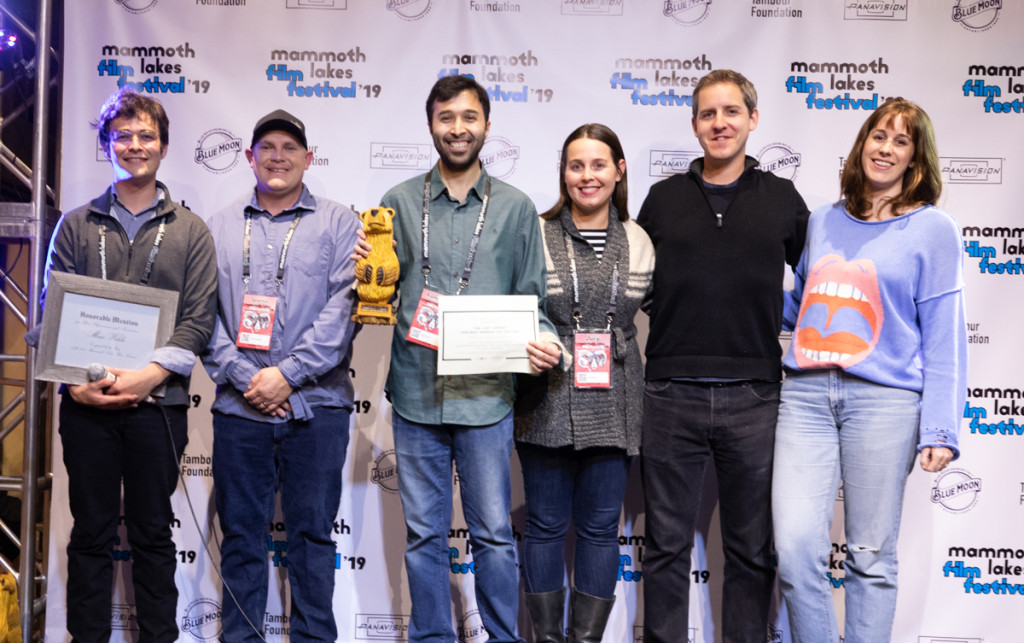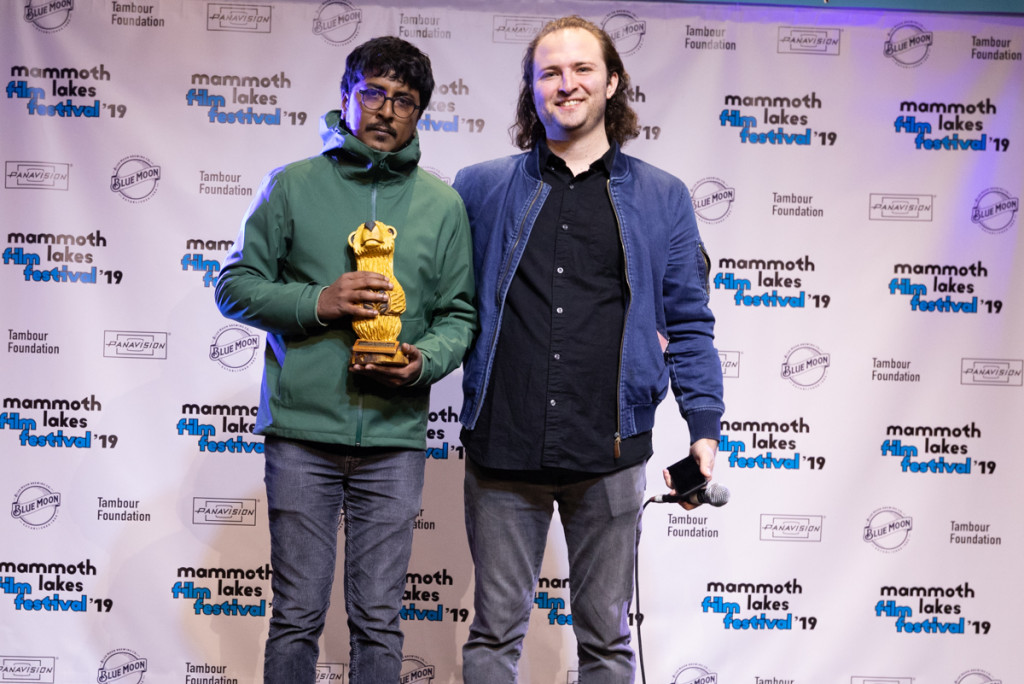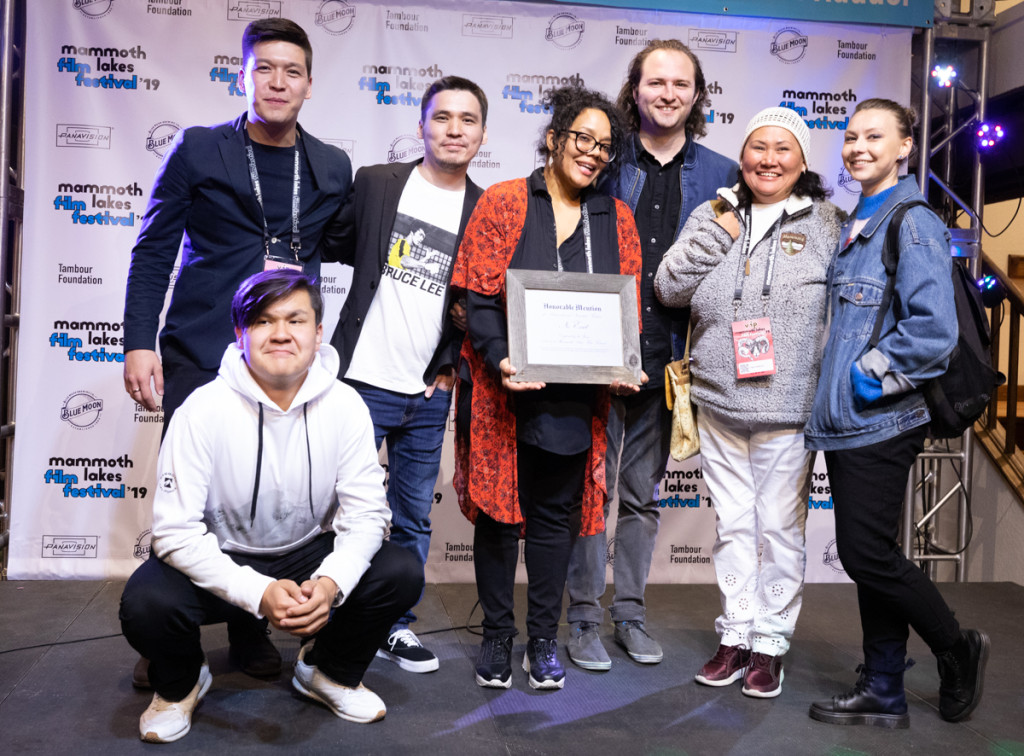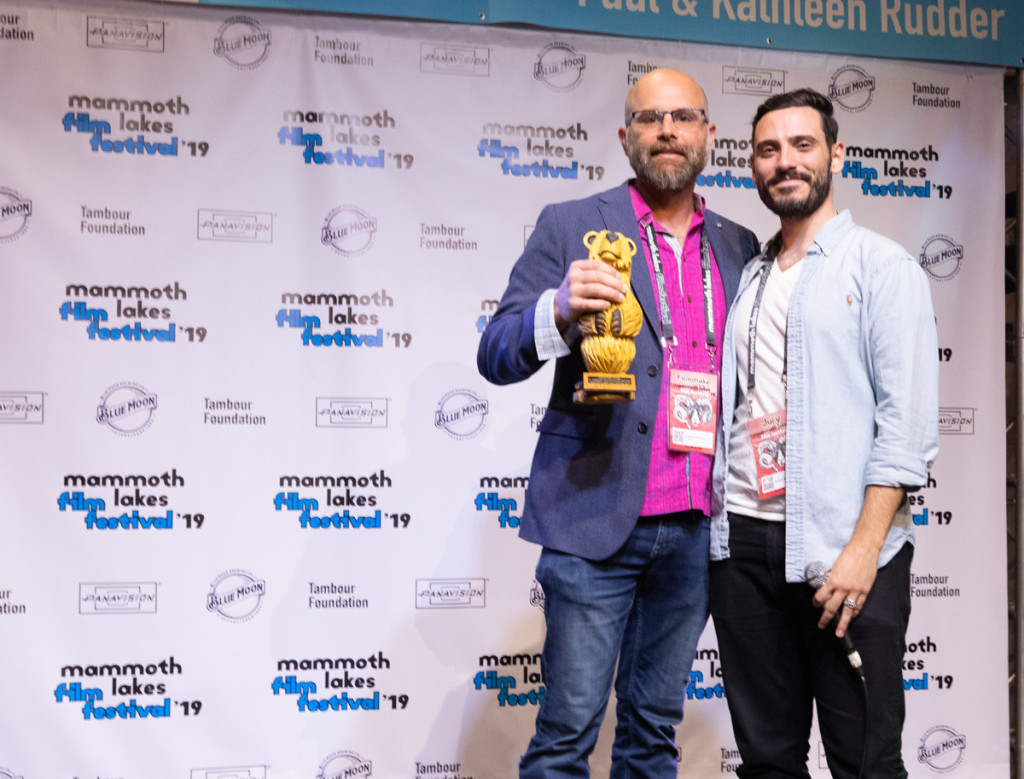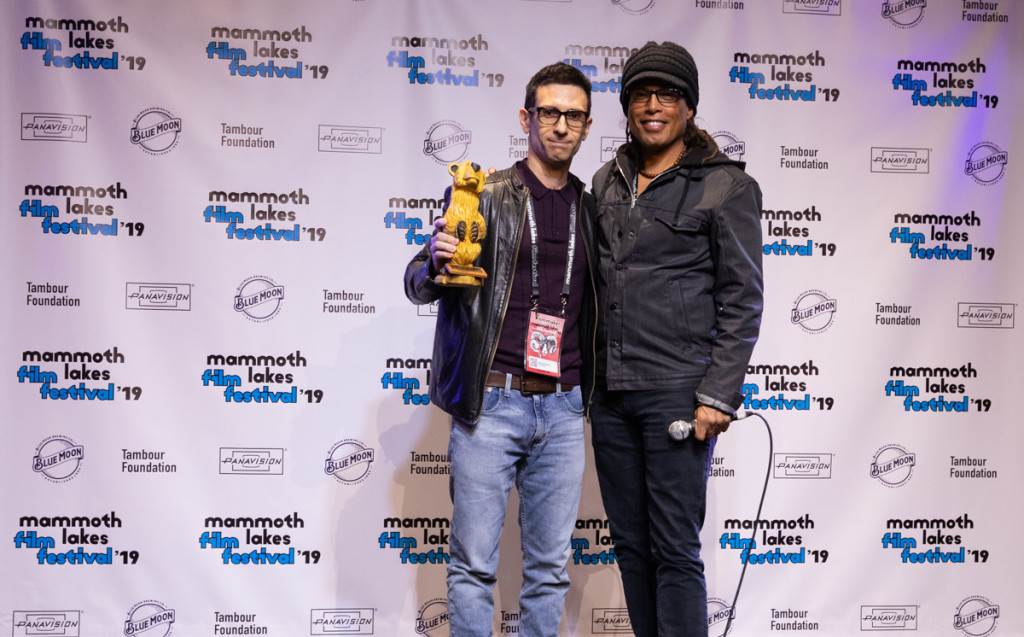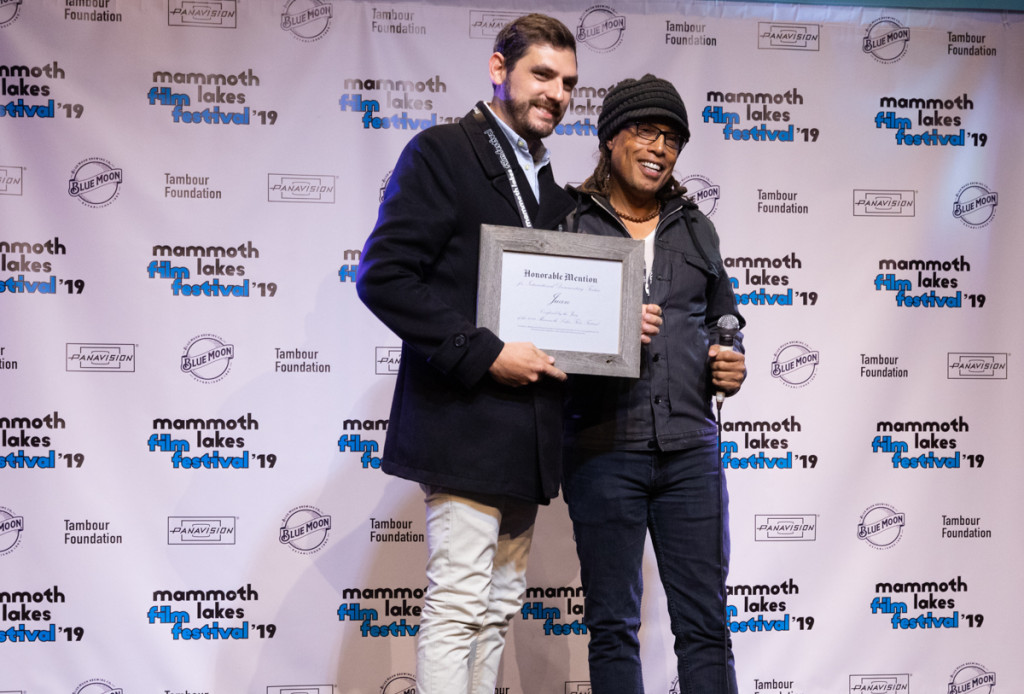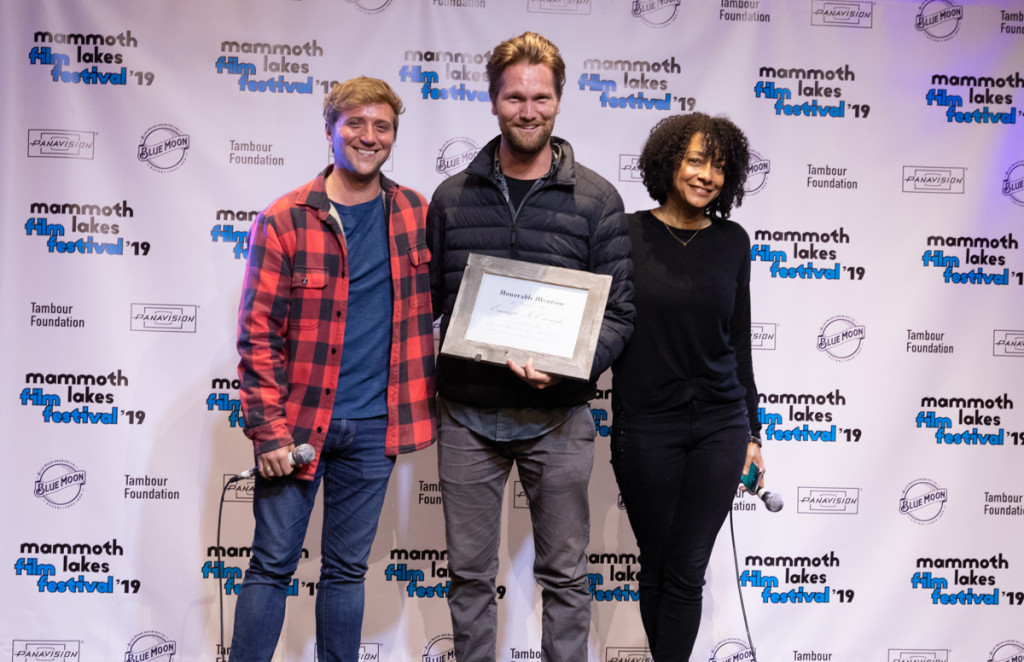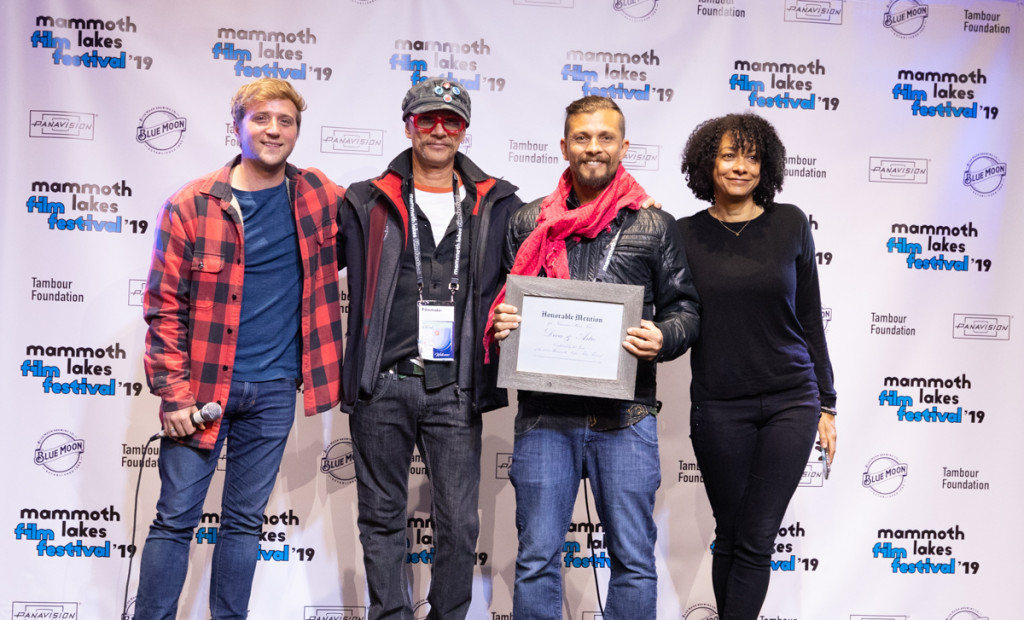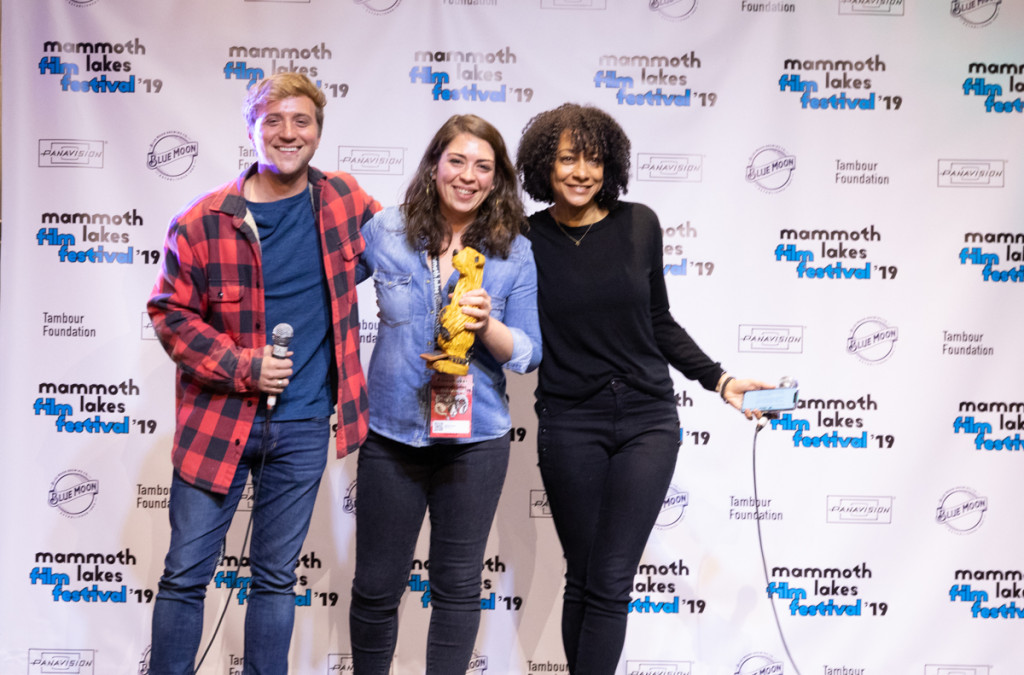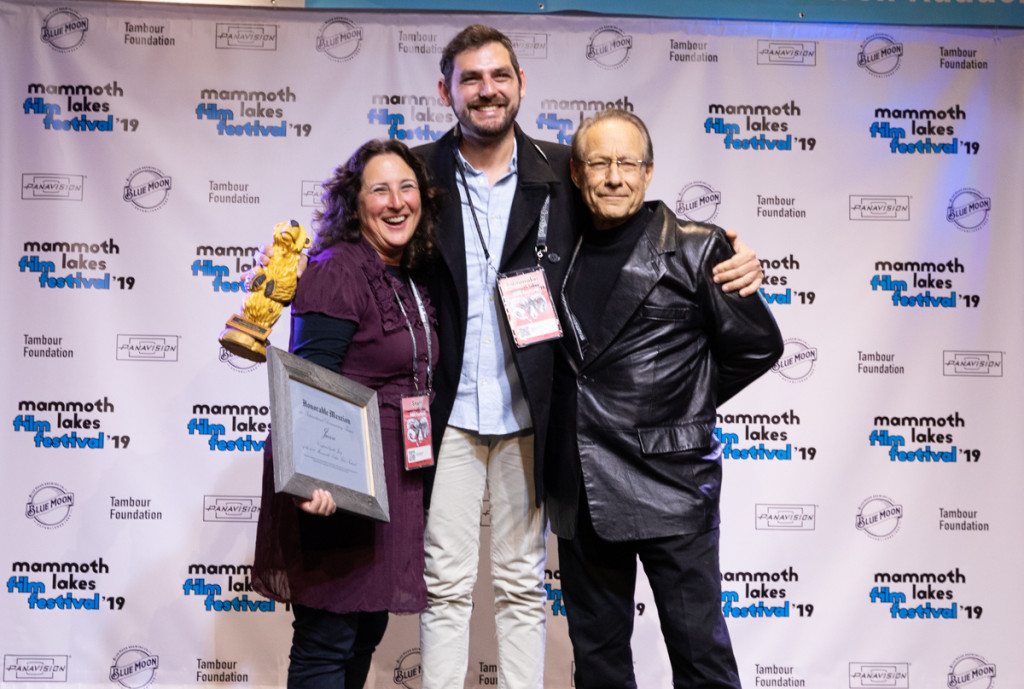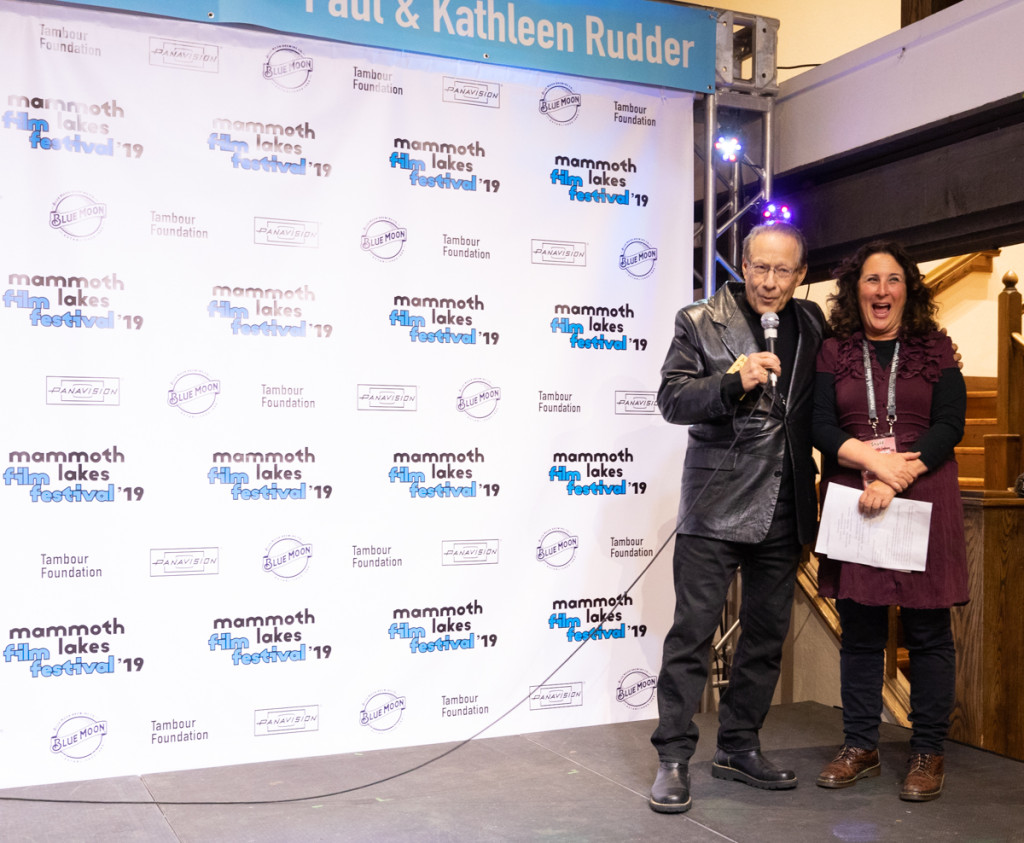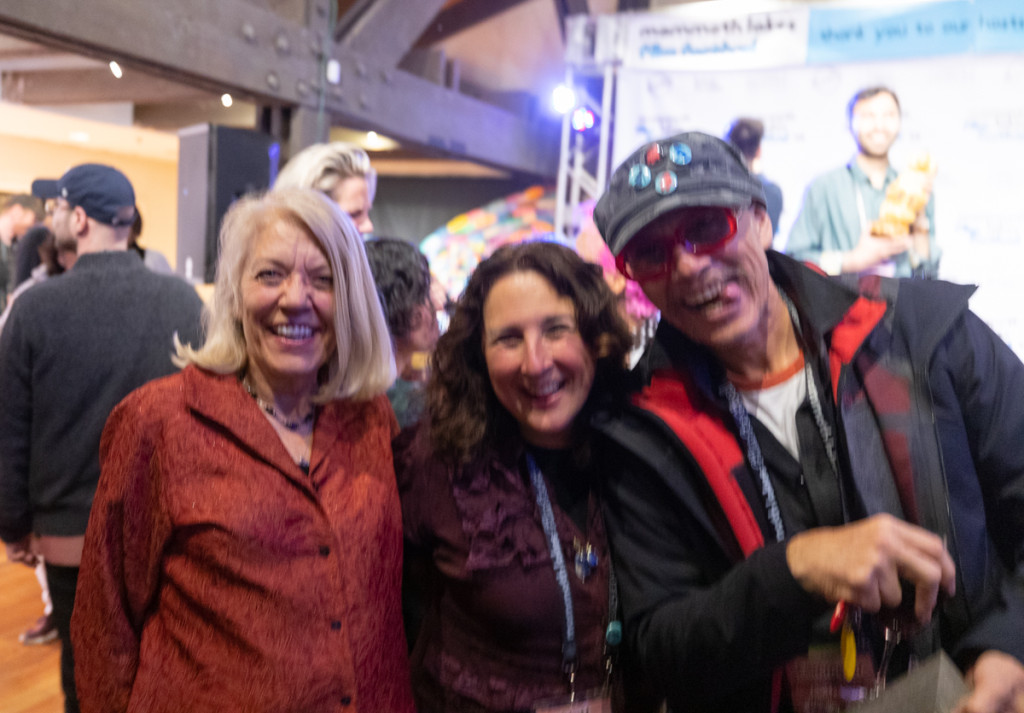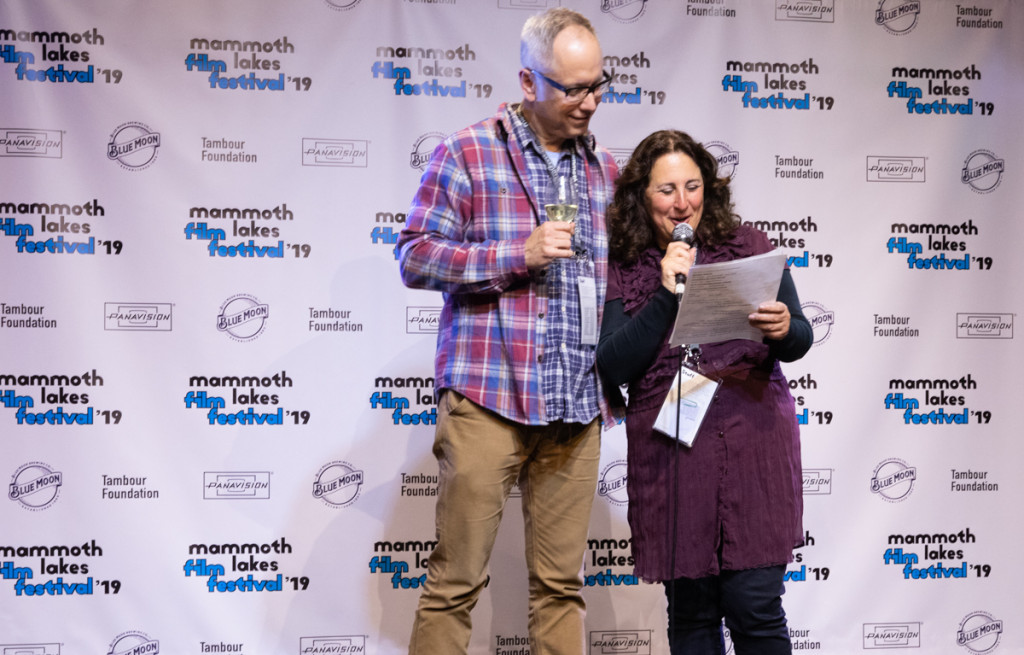The final day of Mammoth Lakes Film Festival’s 5th year began with another strong set of shorts in Shorts Block 5. Who’s a Good Boy was a surreal take on man-as-dog; Pastel Noir, below, was inspired by director Beau Bardos listening to a podcast from David Lynch who said “‘One day I was painting and I wanted to make a movie'”
Bardos added “which I really dug, so I made a movie.” He made it using images of some actors he would dearly love to cast: Bogart and Brando, plus a collage-like pastel take on a noir tale of a kidnapped heroine who stabs her would-be attacker and then hails a ride home. Squirrel was an ironic, delightful, and really rich story about a man whose inappropriate texting-while-driving caused an accident that left a woman a parapleigic — and his apology to her, and her attendance at his birthday party, and the way in which both of their lives was inextricably altered. And it’s funny.
In License and Registration, director Jackson Ezinga, above, stars as a police impersonator whose first arrest gravely misfires. Shot in Ezinga’s Grand Rapids’ neighborhood, this terrific character study offered drama, pathos, and humor with a strong script and directorial focus. “I starred in it by default when my lead actor couldn’t make it, and everything was set up already,” he related, acknowleding that writing, starring and directing was “a lot.” Despite that, Ezinga multi-helmed a terrific, engaging piece.
Directors Ryan Betschart and Rachel Nakawatase – Nakawatase also scored – produced A Collection of Attempt in Astral Travel. The abstract work was inspired by the books of parapsychologist D. Scott Rogo and uses colors that are liquid-based through the use of a multi-plane, upshooter camera. The married duo are planning to create a feature doc that includes this type of footage, but the process was paintstaking: it took two years to create the six minute animation. 023 _GRETA-S presents a young actress’ emotionaly devastating and manipulative audition experience; while from Iran, Like a Good Kid rounded out the shorts program with a tense depiction of a nanny tormented by her bratty 5-year-old charge when caught in a theft.
The sharply hilarious and frightening short Hot Dog preceded the screening of narrative feature No Exit. Hot Dog gives us a very bad and ultimately halucinogenic day in the life of a brusque female cop. Director T.J. Yoshizaki, above, says the idea for the project began when a rather rude female cop blocked in his own car. “Somehow I built a story around it.” The director joked in regard to a question about an extremely well-staged hit and run accident in the film: “Don’t worry, only one actor was killed.” The smart short made a worthy opening to a fresh, eerie horror-suspense film set and entirely filmed in Kazakhastan, No Exit.
This film was shot by writer/director Sarah L. Wilson who was teaching in Kazakhastan, and who started the project as a committment to the students she taught. A success both in terms of its realization, it’s insight into a location we rarely see, and its terrific use of first-time acting talent, the film works quite well as “just” a good horror film, while also touching on family relationships, life and death, and cultural tropes. “When I was asked to go to Kazakhastan to teach, I went. The country healed me after someone close to me committed suicide,” Wilson explained. “I’d made government commercials there when I was teaching and my students told me they wanted to make a feature film, so I agreed.”
Her lead actor, Bexultan Sydykov, had a nightmare which he shared with Wilson, in which he dreamed he was trapped in his family’s house – this inspired the film. “They’re a real family, and he’d recently lost his father in real life,” the director relates. “His whole family – two brothers, his mother, were in the film along with him. That’s their real house in the film. We shot for ten days, and we literally stole every location, including the subway. When the security guards – who take themselves very seriously in Khazakhastan – would ask, I’d say I was just teaching, and they’d let us shoot. ” The project should have a rosy future: Wilson and her students have a deal to do an eight- part television series based on the film with the Khazakhastan national film studio. “We’re going to pitch it to an American TV company to do a co-production, but I want it to stay in Kazakhastan.”
Two documentary films rounded out the festival: the first, Jawline, follows the odyssey of wanna-be social media influencer Austyn Tester, a 16-year-old newcomer attempting to become the next big internet crush. Also in the film: the fan girls who support him and so many others; a successful internet talent agent – just 18 himself – and a look at Tester’s family, home life, aspirations, dreams, and the sincerity that ultimately makes succeeding in this Internet world difficult. Of her thoroughly accomplished film with its visceral character arc, director Liza Mandelup says “I wanted to film someone who had a high stakes situation, someone who dropped everything to try something. I was told about Austyn – I was looking for someone like him – and that’s how the film began. Ultimately he didn’t have the superficial qualities to stay in the business, and really this is a commentary on the oversaturated post-social media gold rush. When I first started filming, I thought I was covering a rise-to-fame concept, but this is a more complex story.” The film will have an August theatrical release date as well as a release on Hulu.
Bronwyn Maloney, the graphic artist who created an astonishing opening teaser for the festival featuring archaic images of regional fossils, was thanked by festival director Shira Dubrovner and program director Paul Sbrizzi, above, at the start of the closing film of the festival. Bittersweet to see the festival end, this final day was terrific, including the last screening, a solid telling of the Chelsea Manning story in XY Chelsea. The whistle blower’s story, from its political and social aspects to her own personal odyssy as a trans soldier and prisoner, are expressed well in a film with brooding insights over what it means to be a social activist – and what constitutes activism – in today’s America.
After the last film, guests headed over to the Mammoth Lakes Polo Event Center for a lively awards ceremony and party. The warm, jubilant, and inclusive event echoes the way in which this highly professional yet intimate festival itself is run each year. Awards from both jury and audience were presented, craft cocktails from Devil’s Creek Distillery, Blue Moon brews, Black Box wine, and Bleu Handcrafted foods kept guests sated while prizes were announced.
Awards are listed below.
Jury Award for Best North American Narrative Feature, with a $1,000 cash prize, $10,000 Panavision Camera Rental Grant and $10,000 Light Iron Post Production Package, went to A Great Lamp.
Special Mention went to actor Max Wilde for his performance and animation in A Great Lamp.
Jury Award for Best International Narrative Feature, with a $500 cash prize, went to Cat Sticks.
Special Mention went to No Exit.
Jury Award for Best North American Documentary Feature, with a $1,000 cash prize, went to 17 Blocks.
Jury Award for Best International Documentary Feature, with a $500 cash prize, was won by Clean Hands.
Special Mention went to Juan, above.
Jury Award for Best Narrative Short, with a $500 cash prize and $5,000 VER Rental Grant, went to Molly’s Single.
Special Mention for strong editing, cinematography and acting was given to the terrific Enough Is Enough, above.
Special Mention for choreographed storytelling went to Diva & Astro, the film’s astonishing direction and cinematography (director and cinematographer above) was impressive.
Jury Award for Best Documentary Short, with a $500 cash prize, went to The Clinic.
Jury Award for Best Animation Short, with a $500 cash prize, received by the intensely moving Dani.
Special Jury Award for Bravery, with a $500 cash prize, was received by doc Midnight Family.
Audience Award for Best Narrative Feature, with a $1,000 cash prize and $5,000 Panavision Camera Rental Grant, went to the impressive No Exit, above.
Audience Award for Best Documentary Feature, with $1,000 cash prize, was awarded to Juan. The award for this true labor of love film was even more important today than at any other time: a premiere in the director’s – and the film’s – country of origin, Venezuela, was cancelled due to current policial/social circumstances there. It’s a beautiful film, and one that celebrates the heritage of the nation itself, as well as the work of its titular artist and guru, Juan Sanchez.
Paul Rudder, festival sponsor, above with Shira Dubrovner. Rudder said “I want to thank Shira for this festival, and I want to than everyone for coming. We are glad to have you here in Mammoth Lakes. We’re a ski town, where some people think culture is someone who left a book behind at a McDonald’s. You, your presence, proves them wrong.”
Jurors included:
North American Narrative Features Jury: Mia Galuppo (The Hollywood Reporter), Sean McDonnell (A24) and Katie Walsh (Tribune News Service, Los Angeles Times)
International Narrative Features Jury: Shalini Doré (Variety) and Max Weinstein (MovieMaker Magazine)
North American Documentary Features Jury: Allison Amon (Bullitt) and Andrew Borden (1091 Media)
International Documentary Features Jury: Gus Krieger (Filmmaker) and Jacques Thelemaque (Filmmakers Alliance)
Shorts Jury: Delila Vallot (Filmmaker) and Harry Vaughn (Sundance Film Festival Programmer)
To sum up the festival: it was terrific; and each of the films we saw are more than worth viewing, supporting, and celebrating. As always: the Mammoth Lakes Film Festival, program director Paul Sbrizzi, and festival director Shira Dubrovner (below) have created unique programming that’s rewarding to see, and a festival experience that’s a celebration of film, originality of vision, and community spirit. It’s no easy task, but it is an important one.
- Genie Davis; Photos: Jack Burke
